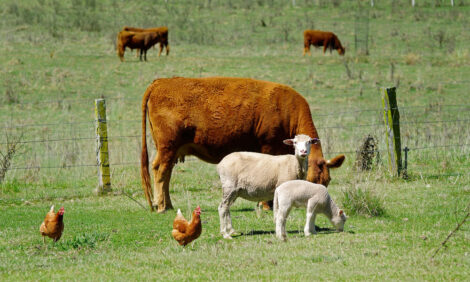



Programme Reduces Consumption of Antibiotics
DENMARK - Researchers at the University of Aarhus are looking to breed chickens and pigs with higher disease resistance. They are hoping to produce healthier animals with a lower dependence on antibiotics.Senior Researcher Helle R. Juul-Madsen from the Faculty of Agricultural Sciences, Aarhus University, started a large project that will ensure healthy, robust chickens for animal welfare, farmers and consumers. Aarhus University is working with the Hellevad hatchery and US poultry breeding company Cobb-Vantress.
The breed in question, from the Hellevad hatchery, is a cross between the New Hampshire and an old Danish breed of chicken called Skalborg, which Ms Juul-Madsen says is particularly strong. This breed is known as Hellevad.
"Using high-tech research, we want to implement breeding programmes in poultry production, based on a selection of animals with a wide spectrum of hereditary disease resistance," explained Ms Juul-Madsen.
Recent studies indicate that the substance mannose-binding lectin (MBL) is one of the key parameters of innate, broad-spectrum resistance. It is also shown that the Hellevad breed has three times as much MBL as other commercial chickens in Denmark.
"We have shown that there is some correlation between susceptibility to various poultry diseases and the hen's genetic profile, ie its genotype on the production of MBL. One of our goals is to identify the genetic parameters in Cobb breeders that affect their levels of MBL. We can then eliminate the least-resistant animals in breeding herds," explains Ms Juul-Madsen.
She will also explore how MBL affects a hens response to vaccination and possibly other substances that have an effect on the immune response.
With a better understanding of how the robustness and the formation of MBL work together in the Hellevad hen, breeding can be used more effectively - meeting market requirements.
The new knowledge about MBL and robustness can be implemented in commercial poultry through the international breeding company Cobb-Vantress, which has 20 per cent of the world market for broilers, says senior scientist. She also believes that the results can be transferred over for use in swine production.
Ms Juul-Madsen says that the genetic defects that cause low levels of MBL in pigs are already known, so it will make it easier to reduce the consumption of antibiotics.











